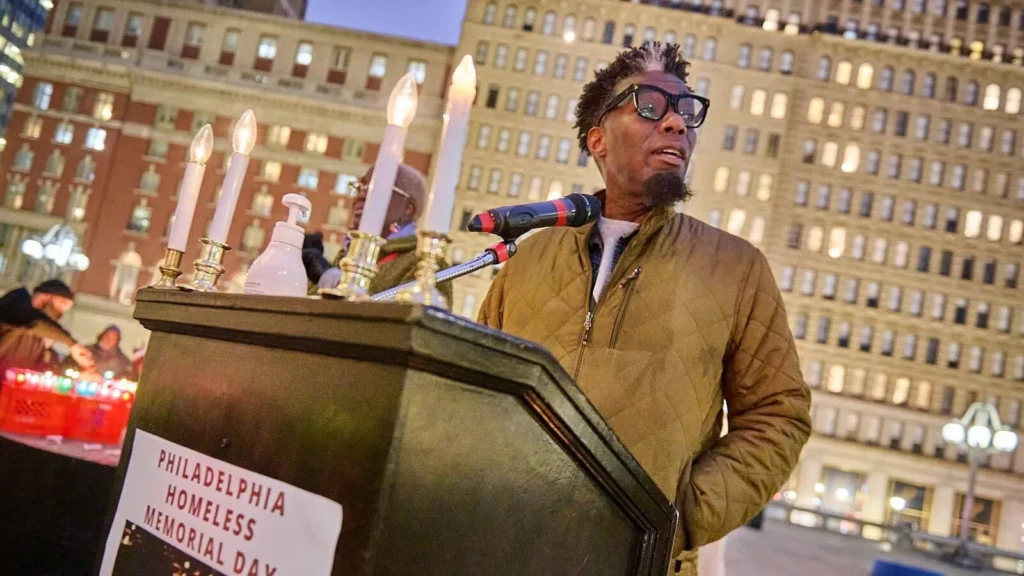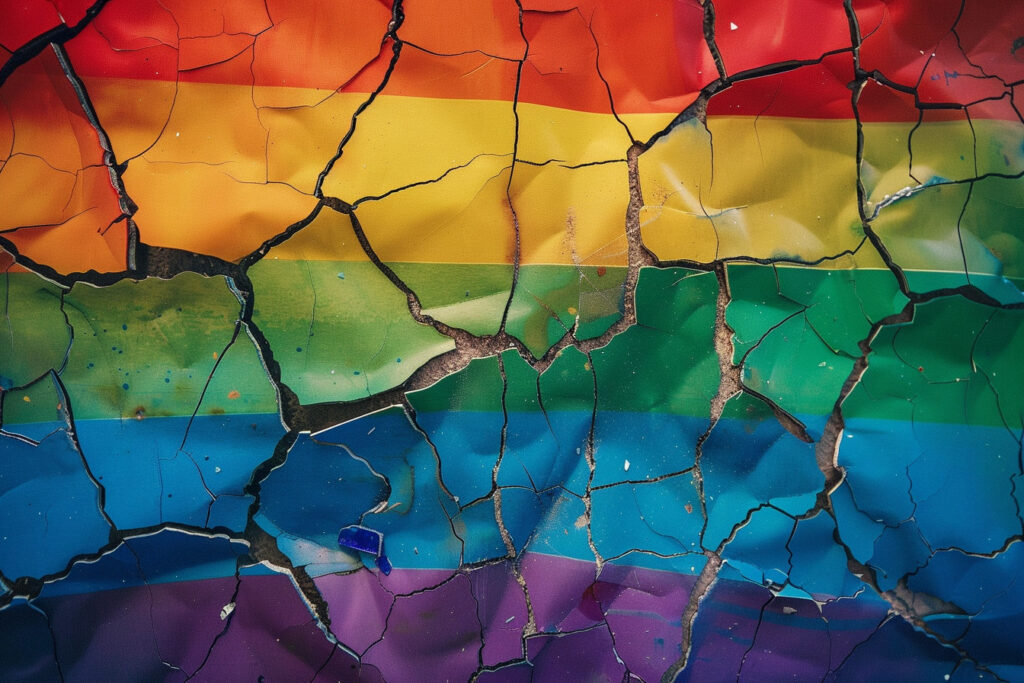There’s a funny episode of Will and Grace where Jack visits his stepfather, after not seeing him for many years. Jack is guarded and judgmental upon meeting, having felt misunderstood growing up. Expecting the worst, instead he’s greeted with a smiling and friendly step-dad who gives him a gift-wrapped box. As he shakes the box he says “Hmm. Mm-hmm, I wonder what this could be – your approval? No, doesn’t feel heavy enough.”
There’s nothing more powerful than the approval, support, and encouragement from a parent; conversely, there’s nothing more devastating than a parent’s neglect or absence (except of course more extreme forms of abuse). This idea holds especially true if you’re a gay man trying to create sustainable relationships with other men. We need to understand our relationships to our fathers, including stepfathers, caregiving uncles, father-figures, etc., if we are going to give and receive approval, support, and encouragement to each other.
Our relationships to our fathers build the foundation for how we connect and share our love with men. For many of us, this foundation is not very strong and for some it’s even cracked. How are we going to create healthy, nurturing relationships, if our inherited foundation is unreliable? Here is the same question in its more extreme form: how are you going to love another man if your father never loved you?
I had a distant relationship with my father. I remember a grumpy, miserable man who hated his life. I remember a man who was a stranger and preoccupied with his own troubles. Why did he hide in his workshop? Why was he seldom at home? Why didn’t he hug me?
While growing up, I didn’t know the extent of my father’s pain or the specifics of his life’s story. I did know he was abandoned by his Ukrainian mother at age five and put up for adoption. He never talked about his abandonment or missing his mother. In fact, he didn’t talk about much. I grew up not knowing my father, except for his sadness and discomfort. In fact, only in retrospect can I admit that his brokenness scared me. I sensed the demons he battled everyday and feared for myself.
Understandably, I had much to fear. Fathers can only give to their sons what they themselves possess. Sons learn to mirror their fathers. Only fathers who love themselves will nurture sons who do the same. For that reason, I inherited a cracked self-image – like father like son! My father passed on shame. He passed on self-hatred. Most of all, he passed on a loveless pit in my heart that screamed to be loved. I desperately wanted to be loved by him, but he was emotionally absent – unable.
I struggled to get my father’s attention; I ached for the day when he would awaken and befriend me. That day never came. He died in a car-train crash in 1985; I was fourteen years old. Looking back now, I know my father tried. In his own awkward and emotionally detached way, he tried to love me. But the truth is he failed.
For many years after his death including my early adult life, I lived with an ache in the core of my heart to be loved. I lived with an empty, torturous longing. As you can imagine, it was wildly painful. I wandered lost in my own wasteland of absence, and on any given day, as if chanting a mantra to myself, would ask these questions, “Where is my father?” and “When will another man finally love me?”
Making my way out of the wasteland and finding men who would eventually love me as I needed and deserved was a slow process of multiple corrective experiences that collectively taught me how to love myself better. It took many years to understand my father, my neediness, and my grief. It took accepting the part of me that felt unloved. I had a string of short-lived, yet significant relationships that helped me grow. I was blessed to meet a loving mentor who eventually became known as my gay father. Also, I found a compassionate psychotherapist who loved me deeply, while tutoring me in the art of self-loving.
Once I made peace with my father’s shortcomings, I forgave him. I stopped grasping for our lost relationship and instead cultivated new ones. I maneuvered past the sadness and discovered my heart’s courage. I opened my heart wider and wider and wider, until I understood what it feels like to love intimately. The driving passion to open my heart was fueled by the memory of losing my father. I found conviction in knowing that I never again will allow myself to feel as emotionally impoverished. I now see that if it weren’t for my father, I could not love myself today. Only by knowing the absence of love, do I know its presence.
In closing, I invite you to reflect on your relationship with your father. If you’re feeling inspired, there is a collection of essays that I recommend; the book is titled, The Man I Might Become: Gay Men Write About Their Fathers, edited by Bruce Shenitz.
Now go out there and find the love you deserve!
Alan Robarge is a Philadelphia-based Psychotherapist in private practice and also offers an on-going relationship discussion group for gay men titled Boyfriend University. Learn more at http://www.alanrobarge.com or http://www.boyfriend-university.com






